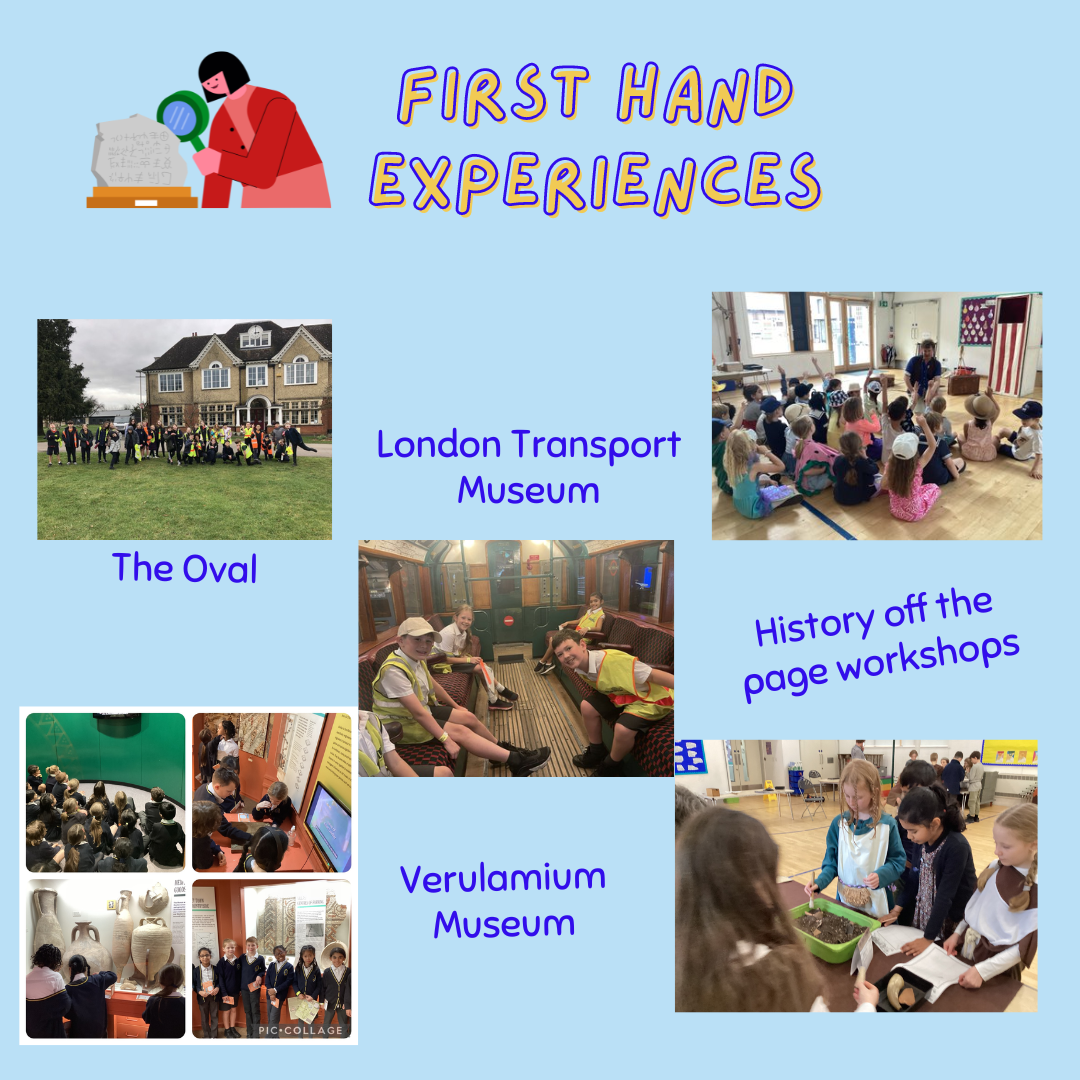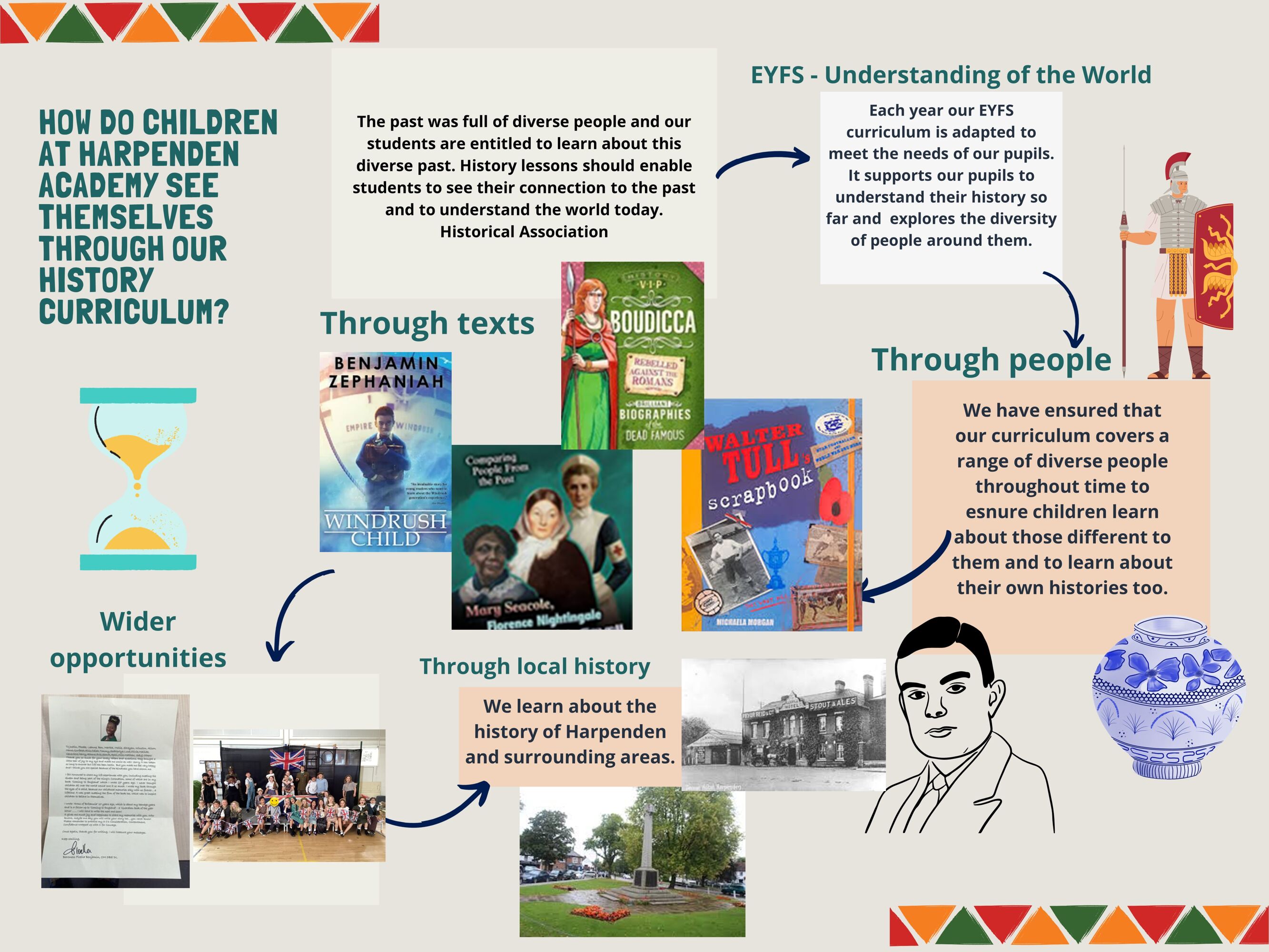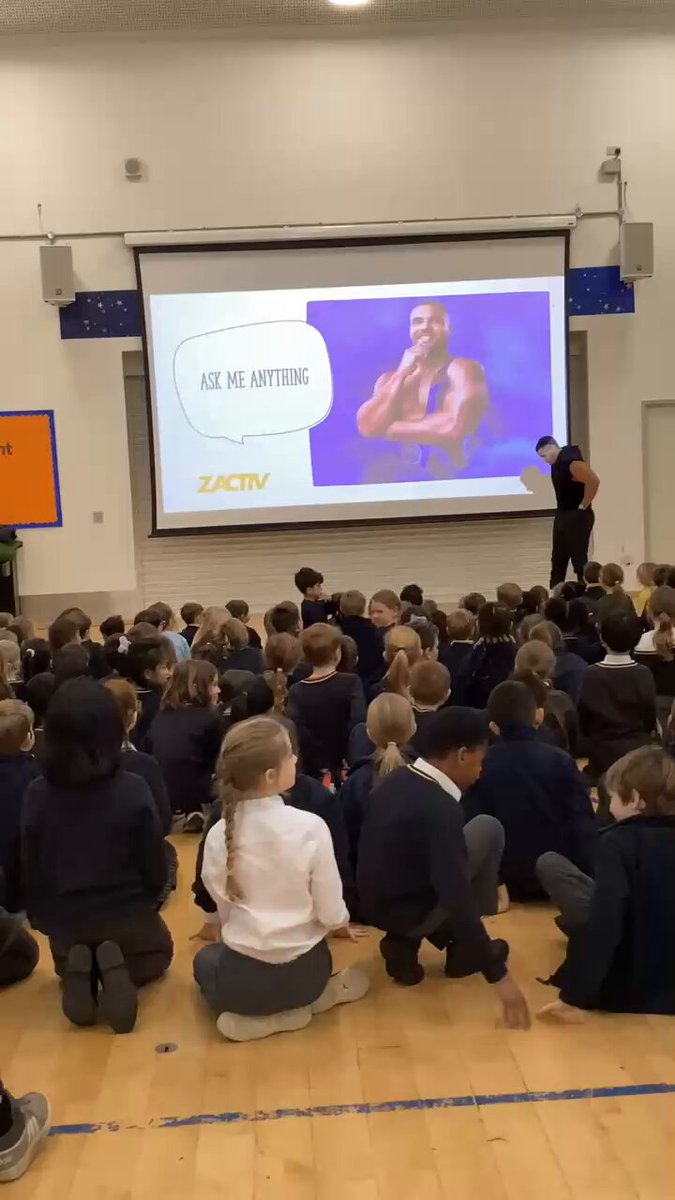History
‘A high-quality history education will help pupils gain a coherent knowledge and understanding of Britain’s past and that of the wider world. It should inspire pupils’ curiosity to know more about the past. Teaching should equip pupils to ask perceptive questions, think critically, weigh evidence, sift arguments, and develop perspective and judgement. History helps pupils to understand the complexity of people’s lives, the process of change, the diversity of societies and relationships between different groups, as well as their own identity and the challenges of their time.’
(National Curriculum, 2013)
Our curriculum is categorised in 2 ways:
- Substantive knowledge - which gives pupils the knowledge about the past.
- Disciplinary knowledge- which gives pupils the skills to think and act like historians. This is learning how historians investigate the past, and how they construct historical claims, arguments and accounts.
Our curriculum knowledge is separated into nine concepts that are revisited and repeated throughout each year group to develop our children’s knowledge and understanding.

Source: Chris Quigley History Curriculum Companion
Our spiral curriculum enables children to retrieve the disciplinary skills each year and update their working memories by applying them to new concepts in greater depth.
Oracy
First Hand Experiences

Belonging




























